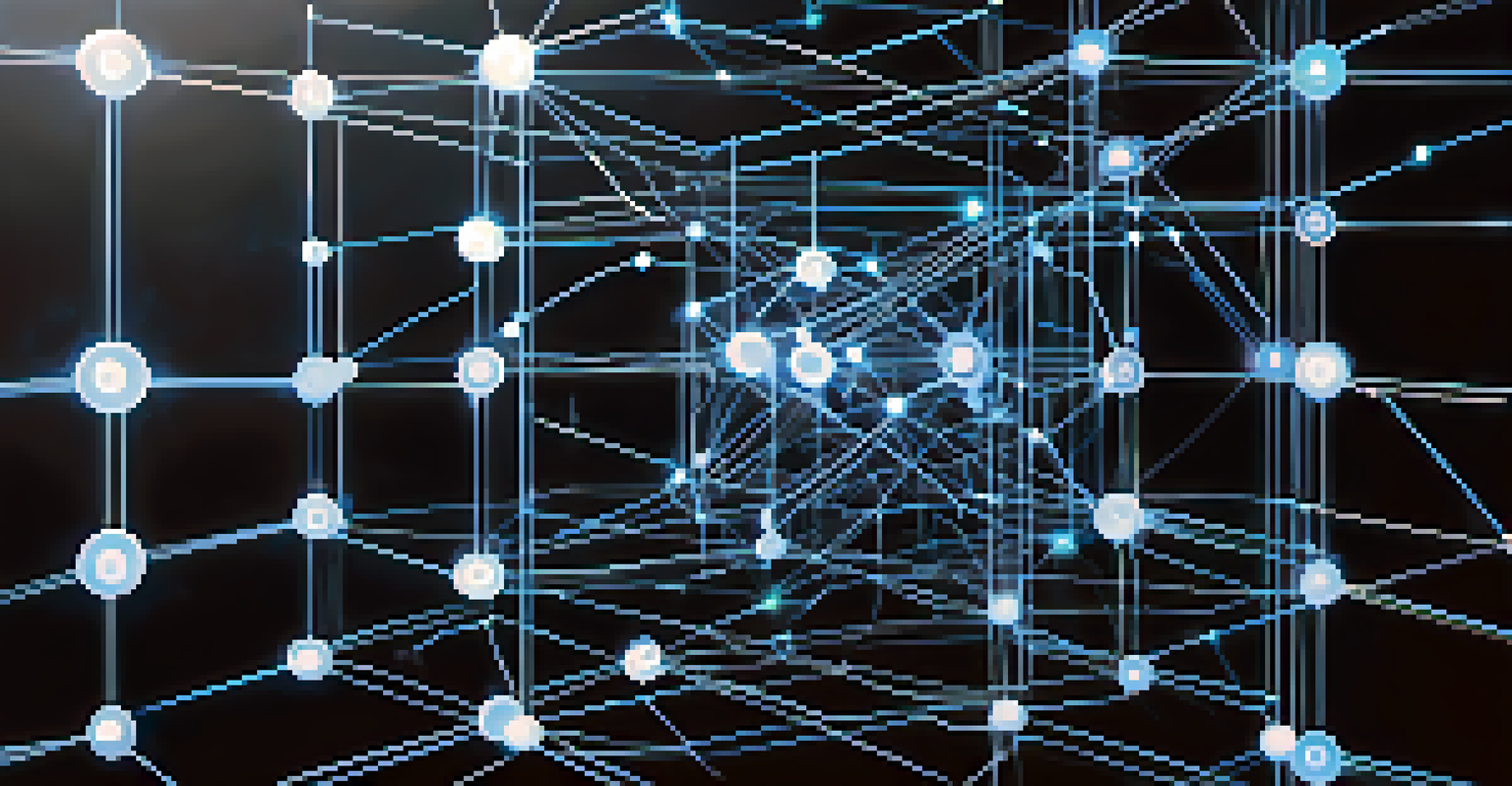The Future of Work: How DAOs Are Reshaping Employment

Understanding DAOs: What They Are and How They Function
Decentralized Autonomous Organizations, or DAOs, are a new breed of organizations that operate without a centralized leadership structure. Instead, they rely on blockchain technology to facilitate transparent decision-making processes among members. This means every participant has a voice, making it a democratic way to manage projects and resources.
The future of work is not about the location of the office; it’s about the people who do the work and how they are organized.
The operational model of DAOs allows for contributions from people worldwide, breaking down geographical barriers. Imagine a team where everyone, regardless of location, can have equal say in decisions—that's the essence of DAOs. By utilizing smart contracts, these organizations can automate processes, ensuring that rules are followed and payments are triggered based on predetermined conditions.
As the world shifts toward remote and flexible work, understanding how DAOs function is vital. They represent a significant departure from traditional employment models, fostering an environment where innovation and collaboration thrive without the constraints of hierarchy.
The Rise of Remote Work and Its Impact on Employment
The COVID-19 pandemic accelerated the trend of remote work, prompting many companies to embrace flexible models. With more people working from home, the demand for innovative solutions to manage teams and projects has surged. This shift has paved the way for DAOs to flourish as they naturally align with remote work's needs.

Remote work offers numerous benefits, such as increased flexibility and access to a global talent pool. However, it also poses challenges in communication and collaboration. DAOs address these issues by creating transparent processes and encouraging active participation, making remote teamwork smoother and more effective.
DAOs Enhance Decision-Making
Decentralized Autonomous Organizations empower all members to participate in decision-making, promoting inclusivity and transparency.
As remote work becomes a permanent fixture for many, DAOs provide a promising alternative to traditional employment. They empower individuals to take ownership of their roles and contribute meaningfully, fostering a sense of community and shared purpose.
How DAOs Promote Inclusivity and Diversity in the Workforce
One of the most significant advantages of DAOs is their ability to promote inclusivity. By removing geographical restrictions and hierarchical structures, DAOs allow individuals from diverse backgrounds to contribute based on their skills and interests. This democratization of work leads to richer perspectives and more innovative solutions.
Decentralization is not a goal in and of itself; it’s a means to an end. We want to create organizations where everyone has a voice and can participate equally.
In a traditional workplace, biases can inadvertently influence hiring and promotion decisions. DAOs mitigate this by emphasizing meritocracy, where contributions are valued over titles or tenure. Everyone’s input counts, which can lead to a more equitable work environment and increased job satisfaction.
Moreover, DAOs encourage participation from underrepresented groups, creating opportunities for those who might otherwise be overlooked. This inclusivity not only strengthens the organization but also drives creativity and productivity, making it a win-win for all involved.
The Role of Blockchain in Enhancing Trust and Transparency
Blockchain technology is at the heart of DAOs, providing a transparent and immutable ledger for all transactions and decisions. This transparency builds trust among members, as everyone can verify actions and outcomes independently. Imagine a workplace where every decision is recorded and accessible—this is what blockchain enables.
By utilizing smart contracts, DAOs can automate agreements and ensure compliance without the need for intermediaries. This not only streamlines operations but also reduces the potential for disputes and misunderstandings. With clarity in how decisions are made and funds are allocated, participants feel more secure in their involvement.
Remote Work Drives DAO Popularity
The rise of remote work has created an environment where DAOs thrive, aligning perfectly with the needs for flexibility and global collaboration.
As trust becomes a crucial component in modern workplaces, the blockchain's role within DAOs highlights its potential to reshape how organizations operate. This technology fosters an environment where transparency and accountability are paramount, encouraging a culture of integrity.
Flexibility and Autonomy: Key Benefits of DAO Employment
One of the most appealing aspects of working in a DAO is the flexibility it offers. Unlike traditional jobs with rigid hours and locations, DAOs often allow members to set their schedules and work from anywhere. This autonomy can lead to improved work-life balance and higher job satisfaction.
In a DAO, individuals are often responsible for their tasks and can choose how to approach them. This empowerment fosters creativity, as team members can experiment with different methods and solutions. The result is often a more engaged workforce that feels invested in the organization's success.
As employees seek more control over their careers, DAOs present a compelling alternative. By prioritizing flexibility and autonomy, these organizations can attract talent that values independence and innovation, driving their success in the process.
Challenges and Limitations of DAOs in Employment
While DAOs offer many benefits, they are not without their challenges. One significant limitation is the potential for decision-making paralysis, where too many voices can complicate and slow down processes. Striking a balance between inclusivity and efficiency is vital for a DAO's success.
Additionally, the technical barriers associated with blockchain and cryptocurrency can be daunting for some participants. Individuals who are unfamiliar with these technologies may feel excluded, which could hinder the diversity and inclusivity DAOs aim to promote. Education and support are crucial to bridging this gap.
Blockchain Builds Trust in DAOs
Utilizing blockchain technology, DAOs ensure transparency and accountability, fostering trust among participants.
Moreover, regulatory uncertainties surrounding DAOs can create hesitancy for potential participants. As governments and institutions grapple with how to classify and manage these organizations, a lack of clear guidelines may deter individuals from fully engaging in DAO environments.
The Future Landscape: Will DAOs Replace Traditional Companies?
As DAOs continue to grow in popularity, many wonder if they will completely replace traditional companies. While it's unlikely that DAOs will fully supplant established organizations, they will undoubtedly influence how businesses operate. The blending of traditional structures with DAO principles could lead to hybrid models that embrace flexibility and transparency.
We may see more companies adopting DAO-like elements, such as decentralized decision-making and flexible work arrangements, to attract and retain top talent. Employees will increasingly seek out organizations that prioritize autonomy and inclusivity, prompting traditional companies to adapt or risk losing their workforce.

Ultimately, the future of work will likely involve a spectrum of employment models, with DAOs playing a significant role. By embracing innovation and rethinking how we collaborate, we can create a more dynamic and fulfilling work environment for all.